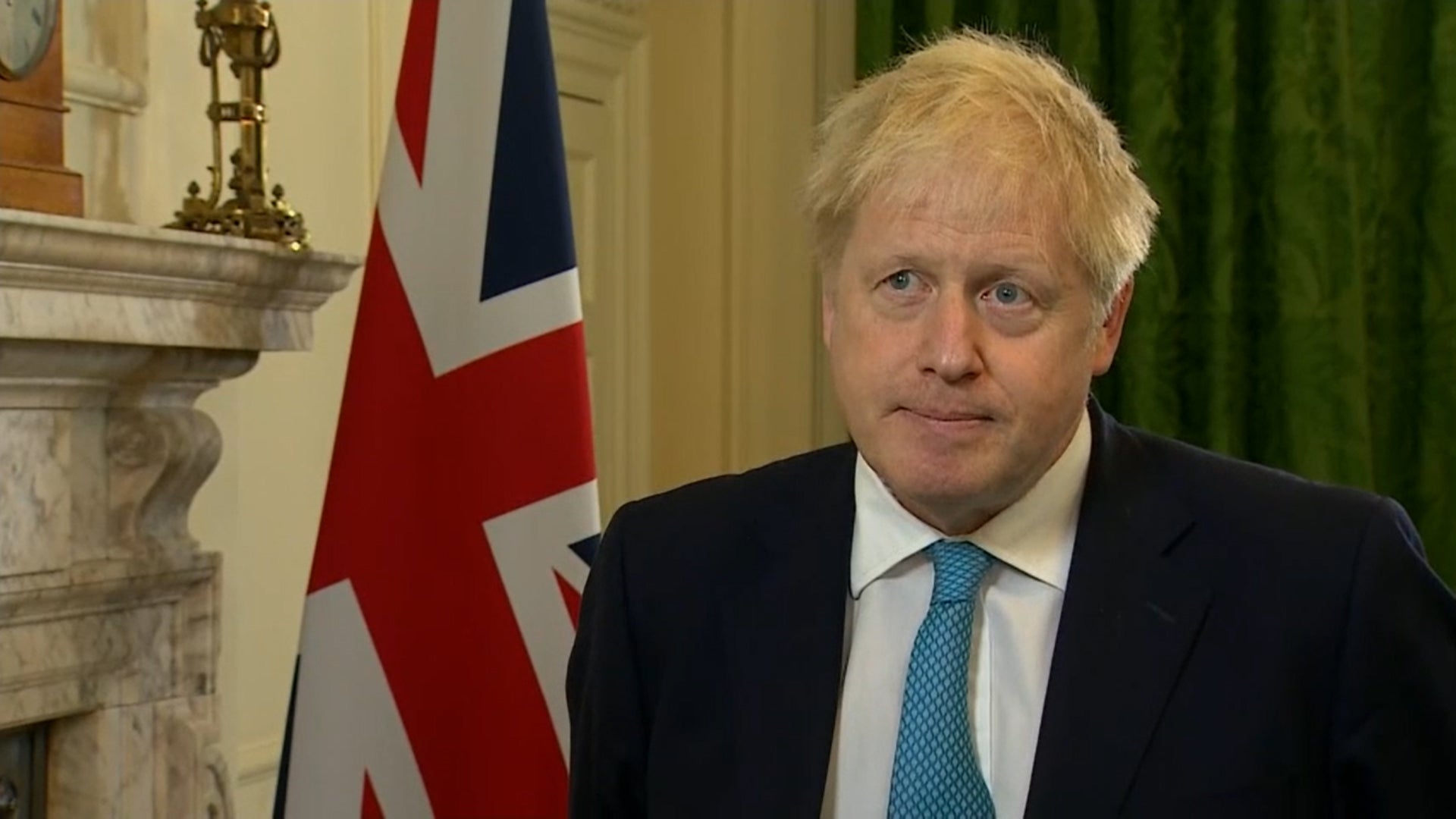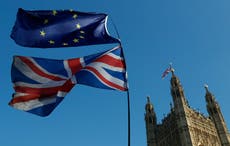Boris Johnson and his ‘chaos theory’ of negotiating is likely to secure an EU trade deal – but a bad one
As David Frost, the British negotiator, and Michel Barnier, his EU counterpart, are locked in talks this weekend, John Rentoul assesses the chances of a deal


The team around Boris Johnson like to think of themselves as thriving on chaos, which confuses their opponents while they keep their heads.
This remarkable insight, provided via James Forsyth, the political editor of The Spectator, seems part peacocking and part excuse. If everything seems chaotic, why not pretend that it is all part of a cunning plan?
It didn’t really work with the EU trade talks. The prime minister said he wasn’t going to talk any more – unless the other side made a fundamental change in its position. Michel Barnier, the EU negotiator, responded, in effect, “please yourself”, and reported to the European parliament that the talks had been suspended.
The No 10 press office then put out a statement saying it had studied Barnier’s words carefully and concluded that they represented a fundamental change. So Barnier arrived in London yesterday, and the two sides have been talking all day today, and are expected to go on doing so until some time on Sunday.
In fact, there has been an important change, which is that the two sides are now discussing legal texts. The EU side had previously refused to get down to this level of detail, saying that the British position was too far away from theirs – the implication, therefore, is that either the British have moved or the EU has, or both.
As ever, this all seems part of an elaborate game of spin as a prelude to the actual negotiation, with the essentials of an agreement already well understood on both sides. It is risky, because problems might emerge at the last moment that make a deal harder, but the supposed sticking points look as if they are designed to be solved theatrically to pave the way for the signatures. A British Conservative government does not seriously want to preserve the right to subsidise exports to the EU, and fishing rights are symbolically important but in the end, after decades of overfishing, are really about who decides how much fish to leave in the sea.
Johnson and his chief adviser, Dominic Cummings, are still trying to cause a bit of chaos. One “colleague” of the prime minister told Robert Peston, ITV’s political editor: “The prime minister’s in two minds constantly over this.” We are supposed to believe that he doesn’t know whether he really wants a deal, which seems remarkably consistent with the view of “one senior figure at No 10” as reported by Forsyth: “The first rule of getting a deal is not wanting a deal.”
Personally, I think this is all spin and bluster. It is obvious that Johnson very much wants a deal – provided of course that he can sell it as a negotiating triumph for the UK. But his ability to do that was proven by the way he sold the withdrawal agreement, despite knowing that it contained clauses that he had no intention of respecting.
The EU leaders very much want a deal too, despite hiding behind the idea that the single market is a rules-based institution. So it might be, but it is full of complications, exceptions and frayed edges, such as Norway and Switzerland. They may want us to pay a price for insulting them by leaving their club, but they are torn because the doctrine of EU solidarity requires that Ireland does not suffer any collateral damage.
The other attempt by Johnson, Cummings and David Frost, the UK negotiator, to sow the seeds of chaos was the UK Internal Market Bill, which announces the intention of the UK government to set aside some of those awkward clauses in the withdrawal agreement in the event of failure to agree a trade deal.
It is not clear how deliberate this was. The problem – that the UK government would be bound to impose EU tariffs on goods going to Northern Ireland from the rest of the UK in the absence of a trade deal – has been known from the start, but was brushed aside in Johnson’s haste to hold an election and get Britain out of the EU.
A logical approach would have been for the UK to have demanded assurances that such tariffs would not be required and then, if the EU refused, to have gone to arbitration. At that point, the government could have drafted legislation to deal with the problem, given that the arbitration procedure could have lasted well beyond the 1 January expiry of the transition period.
Instead, the British government put itself in the wrong, inviting headlines about breaking international law and, if anything, strengthening the EU’s hand in the negotiations. In any case, if the bill was intended to destabilise the EU negotiating team, it would seem to be ineffective, as it is scheduled for its report stage in the House of Lords on 16, 18 and 23 November. The Lords would send the bill back to the Commons after that, probably beginning a further period of “ping-pong” between the two houses of parliament.
By then we will have run past what informed people inside the Berlaymont, the European Commission HQ, say is the real deadline for a deal, namely the middle of November, although these deadlines do seem like mirages when you get closer to them.
All that seems likely to happen is that the cunning strategists in No 10 will have caused a certain amount of chaos, mainly to the disadvantage of the British negotiating team, resulting in a deal that is less good than what could have been achieved by non-chaotic means, but which will nevertheless be proclaimed by the prime minister to be a magnificent triumph.




Join our commenting forum
Join thought-provoking conversations, follow other Independent readers and see their replies
Comments